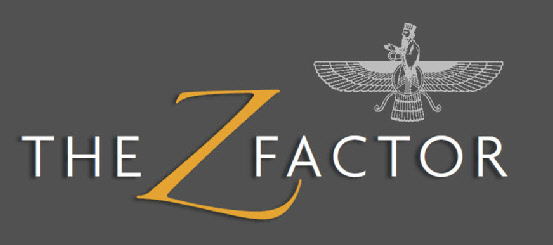Zoroastrian men have character and are clever and charismatic.
Whether they have been in politics like Dadabhai Naoroji, Britain’s
first Asian MP in 1892, or Shapurji Saklatvala, the sole Communist in the House of Commons in the 1920s; held the highest position in the Indian armed forces like Field Marshal Sam Manekshaw; helped build metropolitan cities such as Mumbai, Karachi, Aden and Hong Kong; inspired us with their art, music and writing; taken care of our health and our bank balances; they have done it with imagination, integrity and industry.
Freddie Mercury, born Farrokh Bulsara in Zanzibar, the rock legend and lead singer of the band, Queen, continues to be voted one of the greatest singers in the history of popular music. Queen's Greatest Hits is the highest selling album of all time in the UK, with headlines proclaiming ‘The Kings of Rock are Queen’. A larger than life Zoroastrian, Mercury was ranked 58 in the BBC list of 100
Greatest Britons.
The conductor of the Three Tenors during the 1990 Football World Cup, Zubin Mehta is the Music Director for Life for the Israeli Philharmonic Orchestra. Despite being Indian, he was voted the 117th greatest Israeli of all time.
Meher Baba, born Merwan Sheriar Irani, was a mystic, spiritual master and avatar.
Pete Townshend of The Who dedicated the rock-
Zoroastrian men have worried but have also made many people around the world happy. They have used their talent to create enterprises that still flourish today, and had the vision to use their wealth for legendary charity, benefiting not only Zoroastrians but the wider community. No wonder there is a saying,
‘Parsi, thy name is charity’.
The first Indian baronet, Sir Jamshetji Jeejeebhoy, started life washing and selling bottles, and ended it as one of the greatest philanthropists who ever lived. Jamshedji Tata was the father of India’s industrialisation and his descendants have established social, scientific and artistic centres. Today the House of Tata is
a global conglomerate, and the leading manufacturing employer in India and Britain.
Lowjee Nusserwanjee Wadia founded the dynasty of master shipbuilders and textile magnates. He defiantly carved on the frigate, HMS Cornwallis, ‘This ship was built by a damned black fellow. AD1800,’ as a protest against the racism of some officers in the Royal Navy. It was on the HMS Cornwallis that the Treaty
of Nanking was signed, ceding Hong Kong to Britain. Another Wadia ship, the HMS Minden, achieved fame when in 1812, Francis Scott Keys wrote the American national anthem, The Star Spangled
Freddie Mercury
(1946 – 1991)
Freddie Mercury, born Farrokh Bulsara in Zanzibar, rock legend and lead singer of Queen, continues to be voted one of
the greatest singers in the history of
popular music. During the millennium
celebrations, his song We are the
Champions was voted the most popular
song of all time. Queen’s Greatest Hits is
the highest selling album of all time in
the UK, outselling even the Beatles.
Mercury was ranked 58 in the BBC list of
100 Greatest Britons broadcast by the
BBC, and in Japan he was voted the 52nd most influential hero of the world.
Mercury’s death from AIDS was a turning
point in the history of the disease. The
Freddie Mercury Tribute Concert for
AIDS Awareness was broadcast live to 76 countries and had an estimated audience of one billion people.
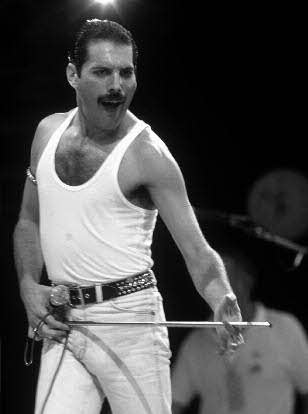
ZOROASTRIAN MEN
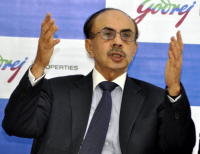
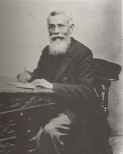
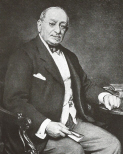
Adi Godrej
(1942 –)
Adi Godrej is the President Designate of
the Confederation of Indian Industry and
one of India’s most successful and
wealthy industrialists. He is the chairman
of the Godrej Group, comprising seven
major companies in more than sixty
countries, with interests in real estate,
industrial engineering, appliances,
furniture, security and agri care. Under
his leadership, the conglomerate has
been a leader in philanthropy and
corporate responsibility. A major
supporter of the World Wildlife Fund,
India, he had the vision to develop a
green business campus in the Vikhroli
township of Mumbai, which includes the
preservation of a 150-
forest.
Mancherjee Bhownagree
(1851 – 1933)
Sir Mancherjee Bhownagree was the
second non-
elected to the British parliament in 1895,
as a Conservative MP for the London
constituency of Bethnal Green. He
championed, with Mahatma Gandhi, the
cause of Indians in South Africa. He is
remembered as one of the organisers
and benefactors of the Commonwealth
Institute in London, opened in 1893 with
a Bhownagree Gallery named after his
only sister. He strongly advocated that
British industry should not exploit India
and emphasised that it was the moral
duty of the British Government to invest
in scientific and technical education.
Dadabhai Naoroji
(1825 – 1917)
Dadabhai Naoroji was the first non-
elected to the British parliament in 1892.
He represented the electorate of
Finsbury in London, and was also the
voice of India, then around 250 million
people (now 1.2 billion). A founding
father of the Indian National Congress,
both Gandhi and Jinnah called him their
Dada. His unwavering commitment to
the need for Indians to play a role in
government led Naoroji to become
known as the Grand Old Man of India.
He championed women’s education and
suffrage, supported pensions for the
elderly, and argued for the abolition of
the British House of Lords as
undemocratic. Naoroji’s strength of
character and selfless devotion to justice
marked him out as one of the few saints
in British politics.
Jamshetji Jeejeebhoy
(1783 – 1859)
Sir Jamshetji Jeejeebhoy was the first
Indian baronet and a legendary
philanthropist. Orphaned shortly after
birth, he made his first trading voyage to
China at the age of sixteen. He endowed
hospitals, schools and charitable
institutions as well as financing the
construction of wells, reservoirs, bridges
and causeways. By the time of his death,
he was estimated to have donated over
£230,000 to charity, a fortune in today’s
money. He was knighted in 1842 and
conferred with a baronetcy in 1858.
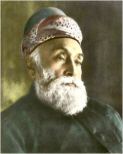
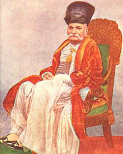
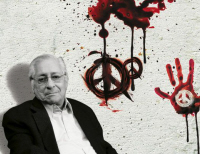
Soli Sorabjee
(1930 –)
Soli Sorabjee was Attorney General of
India from 1998 to 2004. He served as
Solicitor General of India from 1977 to
1980. Sorabjee was awarded the Padma Vibhushan, India’s second highest award, for
his defence of the freedom of expression and the protection of human rights. He was
appointed an Honorary Member of the Order of Australia for service to Australia-
Three Cricketers
Rusi Surti (1936 –); Polly Umrigar (1926 –
2006); Nari Contractor (1934 –)
The legendary cricketers played for India.
Rusi Surti played 26 test matches from
1960 – 1969; Polly Umrigar captained
India and played 59 test matches from
1948 – 1963; Nari Contractor captained
India and played 31 test matches
between 1955 and 1962. The first Indian
cricket team to tour the UK were the
Parsi’s of Bombay, whose club was
founded in 1848.
Jamshedji Tata
(1839 – 1904)
Jamshedji Tata was the founder of Tata
Industries and is known as the Father of
India’s industrialisation. Tata devoted
himself to four key ideas – establishing
an iron and steel company, a world-
educational institution, a hydro-
plant and a unique hotel. The Taj Mahal
Hotel in Mumbai was inaugurated the
year before his death, and the other
projects were realised by his
descendants. Today the House of Tata is
a global conglomerate and the leading
manufacturing employer in India and
Britain.
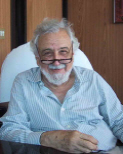
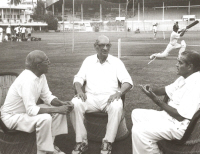

Sohrab Godrej
(1912 – 2000)
Sohrab Godrej was the chairman of
Godrej Industries and one of India’s
most unassuming philanthropists.
Passionately committed to the cause of
environment and wildlife conservation,
he was the founder president of WWF
India and Population Control. His love of
culture, travel, and exploring took him to
over 160 countries, including Antarctica.
He was a friend of numerous heads of
state, top scientists, artists, musicians,
industrialists and politicians, including
Indira Gandhi, Prince Philip and Jacques
Chirac. He was unique.
Ardeshir Cowasjee
(1926 –)
Ardeshir Cowasjee is admired for his
fearless newspaper columns that expose
corruption. He has spared none, from
those at the pinnacle of power to the
lowest stooges who serve their
purposes. He is the Chairman of the
charitable Cowasjee Foundation and is
known as the 'guardian' of the city of
Karachi. In 2011 he received the Jinnah
Award for his outstanding services to
Pakistan.
Bailey Irani
(1924 – 2004)
Bailey Irani, Zerbanoo’s father, was the
Founder President of the World
Zoroastrian Organisation, a trustee and
president of the Zoroastrian Trust Funds
of Europe, and the youngest president
of the City of London Lions Club. He
was loved for his great sense of humour,
generosity of spirit and charisma.
Zubin Mehta
(1936 –)
Zubin Mehta is the Music Director for
Life for the Israeli Philharmonic
Orchestra and despite being an Indian,
was voted the 117th greatest Israeli of all
time. He has been director of the New
York Philharmonic, the Los Angeles
Philharmonic and the Montreal
Symphony Orchestra. Mehta was the
musical director of the Bavarian State
Opera and honorary conductor of the
Munich Philharmonic. He was seen by
billions of people during the 1990
Football World Cup when he conducted
the Three Tenors. He is known as the
Maestro.
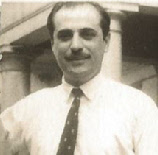
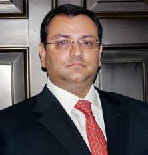
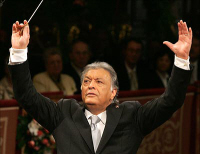
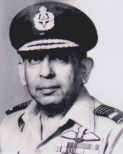
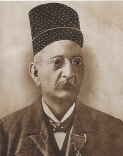
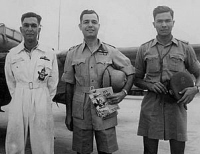
The Engineer Brothers
Minoo (1921 –92), Aspy (1912 – 2002) and
Ronnie Engineer (dates unknown)
These three brothers were all awarded
the Distinguished Flying Cross. Another
brother, Jangoo, who is not in this
photograph, made his mark in civil
aviation as well. Minoo received more
awards than anyone else in the Indian Air
Force. Aspy became the Chief of the Air
Force and later Indian ambassador to
Iran.
Edul Dhatigara
(1923 – 2010)
Edul Dhatigara was commissioned into
the Royal Indian Air Force in 1942. Among the many honours he received for his initiative, courage and flying skills were the Kirti Chakra and the Param Vishist Seva Medal. Revered by his men, he became Air Marshal, and was the Vice Chief of the Indian Air Force when he retired.
Edulji Dinshaw
(unknown – 1914)
Edulji Dinshaw was a legend in the
history of Karachi. He started life as a
contractor of supplies to the British
army during the Second Afghan War
1878-
becoming the largest single land-
in Karachi. He set up hospitals and
dispensaries and his extensive charitable
trust continues to serve the community
today.
Farhang Mehr
(1923 –)
Farhang Mehr was the Deputy Prime
Minister of Iran, governor of Iran in OPEC
and President of Pahlivi University. After
the Islamic Revolution of 1979 he
emigrated to the United States and is
now Professor Emeritus of International
Relations at Boston University. Founder
of the ‘Ancient Iranian Cultural Society’,
he is a renowned Zoroastrian author and
scholar.
Pallonji Mistry
(1929 –)
Pallonji Mistry is an Irish construction
tycoon and described as the richest
Zoroastrian alive. A mogul of real estate
and the largest shareholder in India's
biggest conglomerate, the Tata Group,
his wealth is estimated at nine billion
dollars. His second son Cyrus is heir
designate of the $83 billon Tata Group.
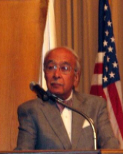
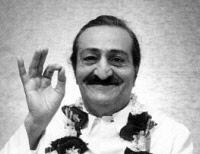
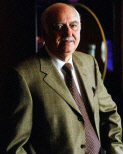
Jehangir Ratanji Dadabhoy Tata
known as J.R.D Tata
(1904 – 1993)
J.R.D Tata was the founder of Air India
and the director of Tata and Sons, the
largest industrial group in India. Under his
leadership Tata became a conglomerate
of 95 enterprises. He helped establish
Asia's first cancer hospital, the Tata
Memorial Centre for Cancer, Research
and Treatment, the Tata Institute of
Social Sciences, the Tata Institute of
Fundamental Research, and the National
Centre for Performing Arts. Awarded the
French Legion of Honour in 1954, he had
to wait until 1992 to be awarded India's
highest civilian honour, the Bharat Ratna
– a rare occasion when the award was
granted during a person's lifetime. In the
same year, he was also given the United
Nations Population Award for his
crusading work in family planning. On his
death, the Indian Parliament was
adjourned, an honour usually given to
prime ministers.
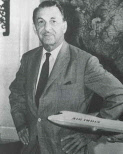
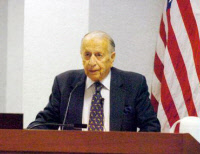
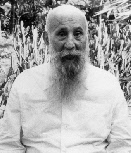
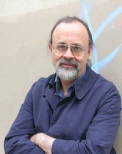
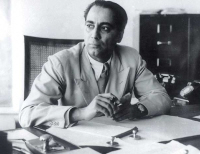
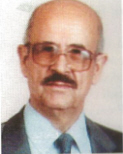
Mehraban Zartoshty
(date of birth unknown)
Mehraban Zartoshty is known as one of
the greatest living Zoroastrian
philanthropists. With his brother
Faridoon, he established a Chair in
Zoroastrian Studies at SOAS, London
University. They were also the major
donors of the Zoroastrian House in
Harrow.
Boman Desai
(1950 –)
Boman Desai worked as a farmhand,
bartender, dishwasher, cook, secretary,
musician, bookstore clerk, telephone
operator, auditor and teacher before
becoming a respected author of four
novels. His novels have varying settings
and themes, ranging from life in Bombay
to the American Depression and the
musical genius of 19th century Germany.
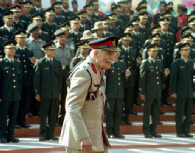
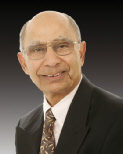

Feroze Gandhi
(1912 – 1960)
Feroze Gandhi was an investigative
journalist and publisher of the National
Herald. He was an Indian patriot and a
member of the Lok Sabha, the Lower
House of India's parliament. In 1942 he
married Indira Nehru (later Prime
Minister of India 1966–77, 1980–84). They
had two sons, Rajiv Gandhi (also later a
Prime Minister 1984– 1989) and Sanjay
Gandhi. Feroze was a prominent force in
his own right, fighting against corruption
and having the courage to criticise the
government of his father-
Jawaharlal Nehru, who was India’s Prime
Minister from 1947 to 1964.
Nadir Godrej
(1951 –)
Nadir Godrej is an industrialist, the
president of the Alliance Francaise de
Bombay and author of the collection of
English and French poems, ‘Life and
Other Poems.’
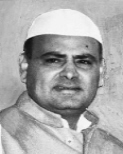
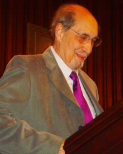
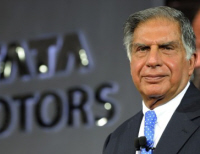
Cyrus and Zavaray Poonawalla
(1941 –) (1943 –)
Cyrus and Zavaray Poonawalla are
brothers who had the vision to start the
Poonawalla Group, including the Serum
Institute of India, which supplies
vaccines to half the newborn babies in
the world. They own the Poonawalla
Stud Farm, and are leading race-
breeders. Both are leading lights of the
Royal Western India Turf Club and are
known for their charitable work.
Kaikhosrov Irani
(1922 –)
Kaikhosrov Irani is Emeritus Professor of
Philosophy at the City College of New
York. He studied at Princeton University,
where he was taught by Albert Einstein.
His original field of teaching and research
is the Philosophy of Science, for which
he has received numerous awards. He is
also an acclaimed expert on
Zoroastrianism.
Cyrus Bharucha
(1941 –)
Cyrus Bharucha is Professor of
Communications and has been in the TV
and film industry for over 40 years,
working for the BBC and CNN, as well as
being the Chief Executive of TV Asia. In
the 1983 he made On Wings of Fire, a
unique epic film covering the history of
the prophet Zoroaster and his people,
the Parsis of India.
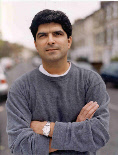
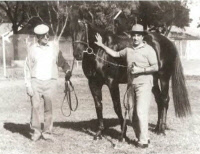

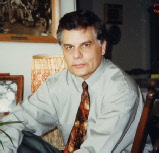
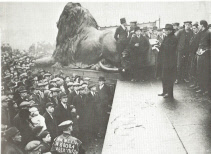
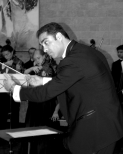
Rohinton Mistry
(1952 –)
Rohinton Mistry is considered one of
Canada’s greatest writers. He was
awarded the Neustadt International
Prize for Literature, one of the most
prestigious international literary prizes.
Like the Nobel, it is awarded not for any
one publication, but for an entire body
of work, including his seminal work, Such
a Long Journey, as well as A Fine Balance,
and Family Matters.
Ardeshir Irani
(1886 – 1969)
Ardeshir Irani was the Cecil B DeMille of
India. He was a writer, director, producer,
actor, film distributor, film showman and
cinematographer in the silent and sound
eras of early Indian cinema. Renowned
for making films in Hindi, Telugu, English,
German, Indonesian, Persian, Urdu and
Tamil, his work was the forerunner of
Bollywood.
Zane Dalal
(1964 –)
Zane Dalal was awarded an Organ
Scholarship to the University of Oxford,
where he held the position of
Choirmaster and Organist at Oriel
College Chapel. In 1994 his acclaimed
performance of Tchaikovsky’s Fifth
Symphony with the American Youth
Symphony in Los Angeles was hailed by
the Maestro, Zubin Mehta, and the
musical world. He has served as the
resident conductor of the Symphony
Orchestra of India since 2007.
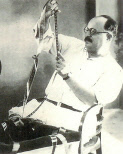
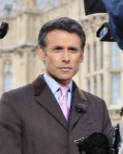
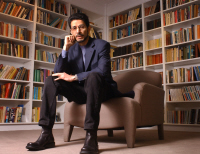
Cyrus Todiwala
(1956 –)
Cyrus Todiwala is an award-
and restaurateur, who regularly appears
on television and radio. Born and
brought up in India, he was awarded an
OBE in 2010 for his services to the
hospitality industry in Britain. He is also a
Deputy Lieutenant of Greater London.
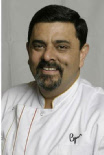
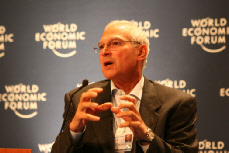
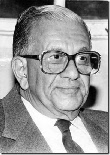
Zarir Cama
(1947 –)
Zarir (Zed) Cama is one of the leading
lights in HSBC bank. He became the first
Asian to head the bank in Malaysia and
retired as one of the bank’s top
executives in its London headquarters.
He has been at the forefront of the
Hong Kong Shanghai Bank’s global and
community programmes. Zed’s
passionate belief in the preservation of
architectural heritage and conservation
of the environmental has marked him
out as a leader in the field of corporate
responsibility.
Jimmy Engineer
(1954 –)
Jimmy Engineer is an artist, stamp
designer and a social crusader for the
blind and orphaned children. His soughtafter art work has been exhibited around the world and is held by many private collectors. Proceeds go nearly exclusively to his charitable work, for which he is famous.
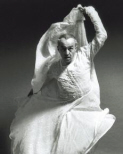

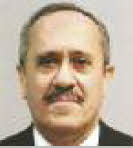
Jehangir Ruttonjee
(1880 – 1960)
Jehangir Ruttonjee was a Hong Kong
philanthropist. He is famous for founding
the Ruttonjee Sanatoriums and helped in
the establishment of the Hong Kong
Anti-
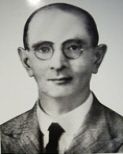
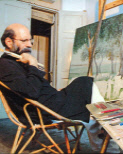
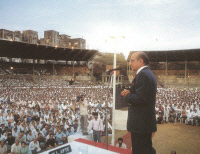
Cyrus Mistry
(1968 –)
Cyrus Mistry is the youngest son of the construction magnate, Pallonji Mistry, and the Chairman designate of Tata’s 114 companies that include Tata Steel, Tata Motors, Tata Consultancy Services, Tata Technologies, Tata Tea, Tata Chemicals, Titan Industries, Tata Power, Tata Communications, Tata Sons, Tata Teleservices and the Taj Hotels.
Meher Baba (1894 – 1969)
Meher Baba, born Merwan Sheriar Irani, was a mystic, spiritual master and avatar.
From 1925 to the end of his life, he maintained silence, communicating by means of
an alphabet board or by unique hand gestures. Baba said, ‘The goal of life is conscious
realisation of the absolute Oneness of God inherent in all animate and inanimate
beings and things.’ ‘The purpose of reincarnation is to provide the opportunity for
liberation from illusion.’ His travels and teachings influenced devotees worldwide,
including Pete Townshend of The Who, who dedicated the rock-
Jamsheed Marker
(1922 –)
Jamsheed Marker has the distinction of having been ambassador to more countries than any other person and the world’s longest serving ambassador. Among his postings, he was Pakistan’s ambassador to Washington and helped negotiate the Soviet military withdrawal from Afghanistan. He served as chair of the United Nations Security Council and was the UN special envoy to East Timor in 1999, where he helped bring about a resolution to the conflict and the independence of that nation.
Sam Manekshaw (1914 – 2008)
Sam Manekshaw was the first of only two Indian military officers to hold the highest rank of Field Marshal in the Indian Army. His legendary leadership during the Indo – Pakistani War of 1971 helped to establish the new country of Bangladesh. His is fondly known as Sam Bahadur, literally ‘Sam the Brave’.
Jehangir Sarosh (1938 –)
Jehangir Sarosh is the co-
Ratan Tata (1937 –)
Ratan Tata is the chairman of the Tata Group, which includes Tata Steel, Tata Motors,
Tata Power, Tata Consultancy Services, Tata Tea, Tata Chemicals, The Indian Hotels
Company and Tata Teleservices. He was responsible for the acquisition of Tetley,
Jaguar Land Rover and Corus, which turned Tata from a largely India-
Ardashir Vakil (1962 –)
Ardashir Vakil is an author and lecturer in creative writing at Goldsmith’s University, London. His first novel, Beach Boy, won the Betty Trask Award, was shortlisted for the Whitbread First Novel Prize. It has been translated into ten languages and established him as a rising star in the field of literature.
Rusi Soonawalla (1928 –)
Rusi Soonawalla has delivered tens of thousands of babies and designed 12 gynaecological instruments. He is a legend in his field and is one of only seven doctors to be awarded the Von Graffenberg Medal in Germany.
Shapurji Saklatvala (1874 – 1936)
Shapurji Saklatvala became the third non-
Matthew Amroliwala (1962 –)
Matthew Amroliwala is a BBC Newsreader who has covered many major news stories, including reporting extensively from Northern Ireland and from Bosnia on the fall of Srebrenica. He also presents the BBC’s Crime Watch.
Homi Sethna (1923 – 2010)
Homi Sethna was the guiding force behind the first peaceful nuclear explosion, Project Smiling Buddha, in India on May 18, 1974. He then became the chairman of the Atomic Energy Commission. He received the Padma Vibhushan, India's second highest civilian award in 1975.
Jamshyd Godrej (1949 –)
Jamshyd Godrej is the Chairman of Godrej and Boyce. A member of the World Economic Forum, he is one of Indian’s most respected industrialists. He is a past President of the Confederation of Indian Industry and has also headed the Indian Machine Tool Manufacturers Association. He is the President of World Wide Fund for Nature – India and a leading environmentalist.
Karan Bilimoria
(1961 –)
Karan Bilimoria was the first Zoroastrian life peer, taking the title of Lord Bilimoria
of Chelsea. He is the founder and chairman of Cobra Beer, UK Chairman of the Indo-
Asted Deboo
(1947 –)
Asted Deboo is a pioneer of modern dance in India and has performed with the greatest dancers in the world. Trained in Indian classical dance, he has created a dance form that is unique to himself.
Nani Palkhivala (1920 – 2002)
Nani Palkhivala’s name is a by-
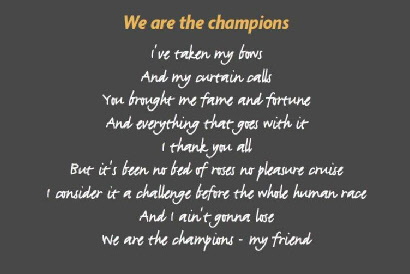
Shapoor Mazda
(unknown – 1964)
Shapoor Mazda left his home in Yazd, Iran, as a teenager with two friends. They walked to British India, where they were free to practise their Zoroastrian faith. He was a purveyor of fine foods and drink and became one of Kolkota’s bestknown tycoons. He was given the title Khan Bhadur for his philanthropy, which was centred on women’s empowerment in Iran and the sinking of wells and provision of pure drinking water.
Homi Bhabha (1909 – 1966)
Homi Bhabha is the father of India’s nuclear programme. He was the founding director the Tata Institute of Fundamental Research and the Trombay Atomic Energy Establishment, now named the Bhabha Atomic Research Centre. He gained international prominence after deriving a correct expression for the probability of scattering positrons by electrons, a process known as Bhabha Scattering.
